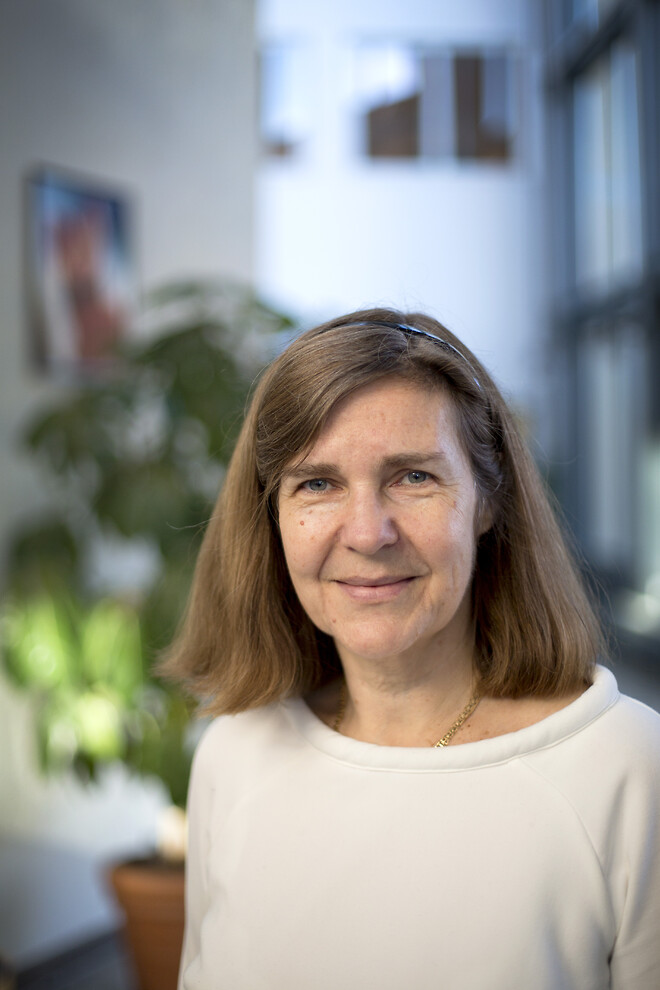CAR-T therapies give continued hope: “Almost half of the patients have become disease-free”
Utilising the body´s immune system against cancer cells is a treatment strategy that has
taken enormous strides in recent years, and CAR-T is one of the methods that has attracted
the most attention.
So far, more than half of the treatments given in Sweden have taken place within the framework of various clinical studies, but in 2019, two CAR-T therapies also became commercially available after being recommended by the NT Council for use in the regions.
One of them is Yescarta, developed by Gilead Sciences’ subsidiary Kite Pharma. It is administered to adult patients with two forms of lymph node cancer – diffuse large-cell B-cell lymphoma and primarily mediastinal large-cell B-cell lymphoma.
According to Gunilla Enblad, professor of oncology at the University Hospital in Uppsala and chair of the national working group for CAR-T cell treatment, between 20 and 30 patients have received the treatment so far.
This is how CAR-T therapy works
The first step in the treatment is to
purify T cells, which are a kind of
immune cells, from the patient’s own blood. The cells are then sent to a laboratory where a gene is added that causes them to express the receptors CAR, chimeric antigen receptors, to learn to recognise and kill cancer cells. The T cells are cultured for three to five weeks before being returned to the patient’s body, where they start doing their job.
The other is Kymriah, developed by Novartis, which was the first CAR-T therapy approved in the EU.
To date, about ten young patients with acute lymphocytic leukaemia, ALL, have been treated with Kymriah at the Karolinska and Sahlgrenska University Hospitals. These patients are very seriously ill and have not responded to other treatments or have had at least two relapses.
According to Peter Klint, Medical Director Novartis Oncology, the experience is positive.
“As always when introducing new drugs in oncology, it is a challenge that you often start by treating very ill patients, and naturally, there are safety aspects, but the treatment has proven effective. As a matter of fact, one can talk about a cure for some patients, which is outstanding and the reason why it attracts so much attention.”
Since August 2018, Kymriah has been EU-approved for two indications in blood cancer: acute lymphocytic leukaemia in children and adolescents and diffuse large-cell B-cell lymphoma in adult patients. However, in Sweden, only the treatment for one of the indications, for children and young people, has been recommended by the NT Council so far.
Katia Eriksson Bragazzi, Country Manager at Novartis Oncology, regrets this.
“Real-world data from other countries shows that the treatment is effective and important for the adult patient group as well. We are in dialogue with the NT Council and TLV about developing our data for a re-examination,” she says.
Novartis has several ongoing studies in which Kymriah is being tested for more indications in
haematology, and according to Peter Klint, the data looks promising so far.
“Furthermore, we have a completely new generation CAR-T in the pipeline, which will hopefully provide an improved and more long-lasting effect, greater safety and which will also be easier to produce. So, we continue to invest heavily in CAR-T.”
Five of the university hospitals – those in Stockholm, Gothenburg, Lund, Uppsala and Linköping – are currently performing CAR-T treatments. They are extremely expensive, and the one-time treatment costs just over SEK 3 million.
Currently they are only approved for third-line treatment of patients who have not responded to other therapies or who have had two relapses.
According to Gunilla Enblad, it is difficult to answer whether enough patients are offered CAR-T treatment today.
“In the initial phase, I think there were some obstacles, but now I think patients in most cases get the treatment if their indications show that they are suitable for it,” she says.
She predicts that the indications will expand in the future and that the treatment method will then be relevant for significantly more patients.
“I think CAR-T will grow as a treatment, and I believe what will happen first is that the therapy will be moved forward and given earlier in the second-line treatment. Several studies show that if you give the treatment at the first relapse and compare it with bone marrow transplantation, the results are better for the patients who receive CAR-T.”
Facts: CAR-T therapies
CAR-T stands for “chimeric antigen
receptor T-cell”. CAR-T therapy was
approved for the first time when
Novartis’ treatment Kymriah (tisagenlecleucel) was given the thumbs up by the US FDA in September 2017. The following year, the treatment was also approved within the EU. Since 2019, two CAR-T therapies have been available in Sweden. These are Kymriah and Yescarta, the latter of which was developed by Gilead Sciences’ subsidiary Kite Pharma. There are a total of five CAR-T therapies approved in the EU.
Artikeln är en del av vårt tema om News in English.

 Av
Av 